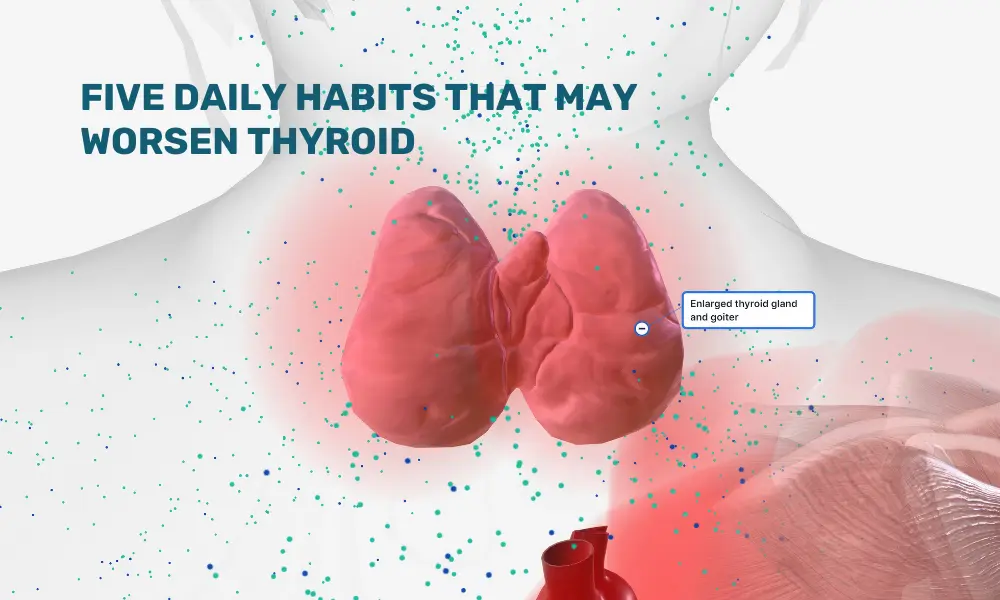Are you experiencing low energy, slow or no weight loss? These can be indications of a slow metabolism. A sluggish metabolism burns fewer calories, meaning more fat is stored in the body. Therefore, some people have difficulty losing weight even after cutting calories and working out rigorously.
Metabolism, often called the body’s engine, is pivotal in energy expenditure and overall health. It is a complex biochemical process that converts what you eat and drink into energy.
However, various lifestyle factors and habits can disrupt this delicate balance, potentially wreaking havoc on our metabolism. Let us examine five habits that might mess up our metabolism.
-
High intake of junk food: Processed foods loaded with unhealthy fats, refined sugars, and artificial additives can cause havoc on our metabolism. These empty calories spike blood sugar levels, leading to metabolic dysfunction and insulin resistance over time.
-
Lack of sun exposure: Our bodies rely on sunlight to generate vitamin D – an important element in metabolic function. Without enough sun exposure, we risk deficiencies that can impact how efficiently our bodies process energy. Additionally, insufficient sunlight can disrupt the body’s circadian rhythm, which affects metabolism-regulating hormones like melatonin and serotonin.
-
Poor sleep: Quality sleep is essential for metabolic health as it regulates production of production of hormones like ghrelin and leptin which help control hunger and satiety. Skimping on sleep disrupts this delicate balance, leading to cravings and potential weight gain. Inadequate or poor-quality sleep can even disrupt hormones like insulin and cortisol, leading to metabolic imbalances and an increased risk of developing diabetes and obesity.
-
Exposure to blue light at night: Our modern obsession with screens exposes us to artificial blue light. The increased exposure to blue light can interfere with our body’s natural circadian rhythms. This disruption affects our sleep patterns and impairs metabolic processes, contributing to weight gain and metabolic disorders.
-
Stress: Chronic stress triggers the release of cortisol, our body’s primary stress hormone. Elevated or high cortisol levels can lead to increased appetite, cravings for high-calorie foods, and the storage of excess fat, all of which disrupt metabolic balance.
Other common mistakes we often make regarding our metabolism include engaging in crash diets or severe calorie restriction, skipping meals, especially breakfast, over reliance on caffeine or energy drinks, and neglecting hydration. These can impair metabolic processes and diminish overall energy levels, thereby hindering daily functioning.
By avoiding these pitfalls and adopting a balanced approach encompassing nutrition, exercise, sleep, and stress management, individuals can better support their metabolism for improved health and well-being. To consult a GP, CLICK HERE.





